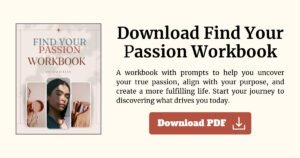How to Become a Life Coach: 3 Easy Steps and a Half a Tip to Becoming it
 This is the most straightforward article you need to read if you want to become a certified life coach. Why I’m only mentioning ‘half’ of a tip to becoming it is for you to find out.
This is the most straightforward article you need to read if you want to become a certified life coach. Why I’m only mentioning ‘half’ of a tip to becoming it is for you to find out.
But before you continue you might like to consider our free worksheet on exploring “Find Your Passion”. Please download this worksheet here.
1-2-3 of Becoming a Life Coach
Life coaching may seem simple, it is actually what I thought of it the first time. And as I learned about it, it is! What coaches do is that they remove the obstacles (definitely not adding new ones) as you focus on guiding clients to reclaim balance in every area of their lives the following are the three easy steps that you could take to jumpstart your path.
Finding Your Personal Niche
You do know that you that everyone can start their journey to becoming a life coach, and when I say it’s everyone, it literally could be an academic, medical specialist, a lawyer, maybe even a newly graduate.
Although everyone could become a life coach, a life coach can’t just focus on literally everyone.
The first step requires you to find a specialty that you would stick to. The absence of a clear personal niche or preference could make it difficult for clients to understand who and what you are so that they can refer specific people with a specific problem to you. When starting your coaching practice, you may find it beneficial to welcome every potential client in your desire to learn, help, and gain experience. But, you should use these learnings and experiences to determine which type of client suits your interest, those who are attracted to you, and those who your skills could serve best. Knowing about the previously mentioned could help you in the long run and for you to have a sustainable practice. The following may help you:
- From your own experience.
Building on your expertise, knowledge, and networks could help you find the clients that would need you. It is also a vantage point that you understand where they’re coming from, the jargon that might come with the job, and the common perspective that could help the client be more comfortable.
- From your passions.
It is not every time that experience can be held advantageous because it might not be a source of fascination for some. So instead, look into what you are passionate about, or that something that has long piqued your interest, or maybe that one thing the occupies your spare time.
-
Learning About Kinds of Coaching
The following explains some of the kinds of coaching:
- Individual Coaching vs. Group Coaching
Individual coaching is what the word ‘coaching’ is most associated with. This is one-on-one coaching with a client over either every aspect of their life or focusing on a specific part of it (those listed under specialized coaching fields). Group coaching on the other hand is applied to a group (couples included). Availability is one reason for preferring group coaching, especially when it is about skills coaching. Group coaching has shown advantages over individual coaching as it fosters altruism, group cohesiveness, and a sense of helping others just to mention some. It has also proved the maximization of scarce resources and has been preferred by academic institutions and big companies. Specialized Coaching Fields:
 Skills Coaching
Skills Coaching
This focuses on transferring needed skills that suit the specific knowledge level, plans, and experience of the coachee. This is most likely implemented according to the needs of an organization.
- Relationship Coaching
Relationship life coaching focuses on family, community, workplace, and general relationships. It is sometimes confused with marital or personal counseling. The significant differences are that the specialist coach will work with only one individual in total confidence – not with a couple.
A relationship life coach is trained to remain dissociated from the emotion of an issue and from further desire to bid advice.
- Career Coaching
General life coaching and specialist career coaching are often inclusive. The career life coach spends time on planning for careers, skills development to reach career goals, and strategic planning for career success.
- Health Coaching
The health life coach works with the client in these areas concerning a healthy body— a balanced diet and exercise. It would be beneficial that the coach would be a mirror of a healthy individual. An understanding of nutrition or a background in physical education will be advantageous.
- Wealth
The amount of income the client can generate is not the focus of wealth life coaching but is a large part of the discussions. A financial background is helpful but not essential for a wealth life coach.
One of the dangers for this specialization is giving advice— although it may be welcome if one is a trained, insured, and a registered financial adviser.
- Spirituality
The spiritual life coach can be religious, as in the traditional Christian, Jewish, Muslim, Buddhist, or other recognized religion or denomination.
Understanding Your Clients
This is a simple way for you to understand your client and building rapport with them. There are three categories of which you could identify your client: auditory, visual, and kinesthetic, and they have their specific needs that are specified below:
 Auditory clients
Auditory clients
- These clients could remember the sound of your voice as they are being coached.
- They could recall the whole conversations including tone, pitches, and even other background sounds.
- They can be slower with their recall but retrieves conversations exactly as if they were playing back a recording.
- Needs:
- When coaching, you must take great care with the words you use.
- Use simple, uncomplicated words; avoid double-meaning words.
- Always summarize what has been talked about.
- Be mindful of the tone that you use when you are coaching, they quickly know if you are bored, sarcastic, etc.
Kinaesthetic clients
- They experience sensations and have feelings during the coaching session.
- They will recall first their feelings, then the information recorded.
- Needs:
- Physical rewards: for example, patting on the back.
- Time for them to process feelings, because they process feeling first before processing the things that you are saying
Visual clients
- Can have a photographic memory of sessions and other experiences.
- They have instant recall because they bring back the whole picture instantly.
- May tend to forget long oral instructions
- Needs:
- Use of descriptive words for them to remember and picture it in their minds
- Fast responses for them not to lose connectivity
To become a certified life coach and be effective, you will learn to be aware of the kind of client that you are dealing with. It will be a valuable skill to quickly discern the kind of client that you have so that you could adjust yourself to keep up with their needs.
Half Tip To Become A Life Coach
Now that you know the three important steps, I can now give you the half tip to becoming it. Well, it is simple, you now have to look for a way to get certified. Coaching certification courses focus on skills like effective communication and core knowledge (about basic models, values, and beliefs). The School of Positive Transformation offers an online coaching certification program covering:
- psychological foundations,
- core competencies and skills of a good coach
- range of different approaches such as :
- person-centered coaching,
- performance coaching,
- cognitive-behavioral coaching,
- positive psychology coaching
- and a very unique module on coaching & climate change.
Now the question is where is the other half of the tip?
You can check a lot of online life coach certification programs but make sure that they are accredited by bodies like the Association for Coaching (AC), IPECC, or ICF.
Ready to discover your life coaching passion and take the first step toward certification? Download our ‘Find Your Passion Workbook’ to help you identify your niche and begin your life coaching journey!”





